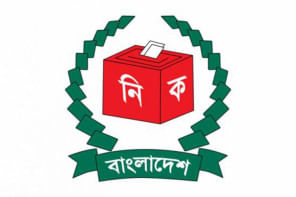Decoding transfer pricing

When two related entities enter a cross-border transaction, the price at which they undertake the transaction is the "transfer price." Due to the special relationship between related entities, the transfer price may be different than the price that would have been agreed upon by unrelated parties. The price between unrelated parties in an uncontrolled condition is known as the "arm's length price" (ALP).
Globalisation and the rapid growth of international trade has made inter-company pricing an everyday necessity. However, the growth of national treasury deficits and frequent use of the phrase "transfer pricing" (TP) in the same sentence as "tax shelters" and "tax evasion" in newspapers around the world have left multinationals in lot of controversy.
Tax authorities have made the regulation and enforcement of the arm's length standard a top priority. A key incentive for challenging tax-payers on their transfer prices is that the authorities see TP as a soft target, with the potential to collect significant tax revenue.
Since there is no absolute rule of thumb for determining the ALP, there exists huge disagreement as to whether the correct amount of tax has been paid.
Most of the world's major nations have implemented transfer pricing regulation, and those who have not are contemplating to do so.
The dispute of TP has been so enormous that OECD, with the help of G20 countries, developed the principle of Base Erosion and Profit Shifting (BEPS) with specific action points on TP issues.
Bangladesh is also a part of the over 80 countries who have joined the BEPS framework and are committed to the implementation of the minimum standards of the BEPS package.
Bangladesh's TP regulations are relatively new, inserted in the Finance Act, 2012 with effect from July 1, 2014.
TP principles will have enormous significance for both inbound and outbound multinationals operating in Bangladesh.
Multinationals will now have to comply with TP provisions, formulate proper TP policies, and defend aggressive positions taken up by the country's tax authorities.
The TP guidelines provides that "the amount of any income, or expenditure, arising from an international transaction shall be determined having regard to the ALP."
Also, multinationals operating in Bangladesh are required to file a Statement of International Transactions when they enter cross-border international transactions.
Furthermore, if the transaction exceeds Tk 3 crore, they are required to file an accountant's report if asked by revenue authorities and also maintain and produce TP documentation.
TP regulations should be seen in the light that it has been brought for more transparency, accountability, and best practices.
The National Board of Revenue (NBR) is taking another look at the TP norms and has decided to be more functional in this front. This is a welcome move as it will send the correct signal to foreign investors.
Any arbitrary step with just the intent to collect additional revenue may tarnish Bangladesh's image as an attractive investment destination.
Given that TP is a new subject in the country, our tax department may consider investing time and energy in the skills development/competency building of its officers.
This will go a long way to ensure the readiness of tax officers to face complexities involved in transfer pricing audits, and ensuring a welcome environment for existing multinationals as well as new ones.
The writer is chairman of Financial Excellence Ltd

 For all latest news, follow The Daily Star's Google News channel.
For all latest news, follow The Daily Star's Google News channel. 



Comments